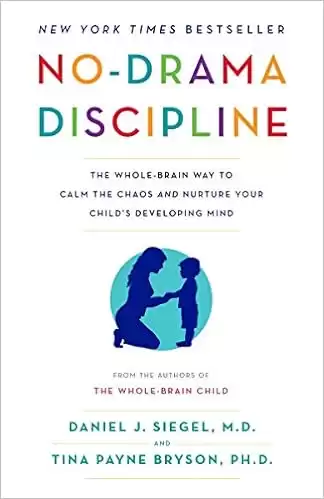Why Learning Authoritative Parenting Can Actually Improve Your Stress
There are three main types of parenting authoritative, authoritarian and permissive. I have another article on permissive parenting and this article will cover the pros and cons of authoritative parenting as well as research that supports its effectiveness. Dealing with the same vicious cycles of getting frustrated at your child for not listening and not responding to your demands can be very frustrating for both you as the parent and the child. Gaining a balance of respect, love and discipline can be a tight rope to walk on, that is why this article helps you navigate authoritative parenting tips that will make your life easier!

Table of Contents
What is authoritative parenting?
Authoritative parenting meets in the middle of authoritarian and permissive parenting styles. Authoritative is still firmer than permissive, but not so demanding like authoritarian parenting. The goal is to educate children on the potential consequences their actions can have.
Research shows that authoritative parenting is linked to a healthier weight and dietary choices in children with parents who chose to parent this way.
Another study showed that there was a decreased chance of substance use in adolescents and actually protected them from engaging in this behavior.
Examples of Authoritative Parenting
Giving your child opportunities to correct their behavior such as ” put the toy away or we are going to have to leave”. Saying it again and then saying if I have to say it again then we are leaving.
Explaining to your child what is going to happen when you go somewhere so they know what is expected of them.
Motivating them rather than threatening to take things away from them helps encourage them and keep it more positive for as long as you can. Incentivize them to do the few things you asked of them (with proper instructions and that is appropriate for their age level) and they can read a book before bed or get a sticker, etc.
Children will test you to see if you mean what you say and if you do not hold your word they will see what they can get away with. This is why it is important to stay true to the expectations you set for them.
If you feel like your child is not listening then you may need to be a little more stern and remind them of what they agreed to do previously.
Another example of authoritative parenting is explaining to a child why something may be hurtful or harmful towards themselves or someone else.
This is the difference between authoritarian parenting style which would cause someone to say things like “do it because I said so.”
An example would be
How do I become an Authoritative Parent?
I think it is important that we deal with our own issues so we don’t take them out on others, that includes our children. By going to counseling and working through things we can allow ourselves to become the best versions of ourselves.
Taking responsibility for our actions and separating them from what our children do can be very crucial in authoritative parenting. This means that the punishment intensity aligns with the severity of the child’s behavior or it is lesser then and they are shown grace but explained why their behavior is undesirable.
By taking responsibility of our own actions and reactions we can question things like “am I having anxiety and I’m overreacting because it’s causing me distress” or do “I have a physical pain that bothers me and it makes me moody, causing me to be harsh on my child.”
This is one of the most important aspects of authoritative parenting is understanding where your level of needs are so that you can be a great teacher and a gentle leader.
Establish clear boundaries so children know what is expected of them.
By learning how to help both parties be heard and validated, this allows us to reduce our stress and anxiety and help us feel a sense of control in our lives.
Authoritative Parenting Books
- This Book was written by a Licensed Clinical Social Worker (understands psychotherapy) and a Medical Doctor. No-Drama Discipline: The Whole-Brain Way to Calm the Chaos and Nurture Your Child’s Developing Mind This book covers child development, how to continue displaying empathy and how to calmly and lovingly connect with your child.
- This book is written by the above authors as well and it includes images to show your children to help them better understand what you are trying to teach them. The Whole-Brain Child: 12 Revolutionary Strategies to Nurture Your Child’s Developing Mind
- Another book that teaches about authoritative parenting and how to be calm and feel heard as a parent while teaching your children.How to Stop Losing Your Sh*t with Your Kids: A Practical Guide to Becoming a Calmer, Happier Parent
- strategies that help parents identify their own discipline philosophy
- what kind of discipline is most appropriate and constructive at all ages and stages
- the way to calmly and lovingly connect with a child—no matter how extreme the behavior—while still setting clear and consistent limits
- tips for navigating your child through a tantrum to achieve insight, empathy, and repair
- how to stay focused on the principles of whole-brain parenting and discipline techniques
Originally posted 2022-02-17 04:28:33.
Megan Santiago
Latest posts by Megan Santiago (see all)
- How to Find a Trauma Therapist in Tampa - September 30, 2024
- The Best Essential Oils for Adrenal Fatigue - March 10, 2024
- The Best Ashwagandha Supplement – It Works Fast - March 10, 2024

